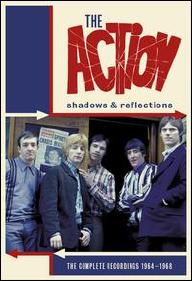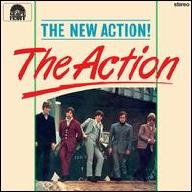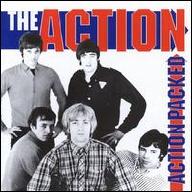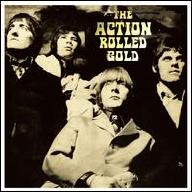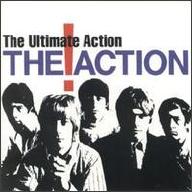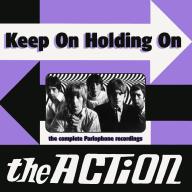The band started out in North London during 1963 as quartet called the Boys, and cut one single as a backing band for Sandra Barry before getting their own shot at immortality on the Pye label with a single "It Ain't Fair." The Boys went out of existence in 1964, but didn't split up, instead reconfiguring themselves as a five-piece. The original lineup of Alan Bam King (guitar), Reg King (vocals), Mike Evans (bass), and Roger Powell (drums) added Pete Watson (guitar) and rechristened themselves the Action.
In this lineup, they developed a tougher, harder sound that quickly made them favorites among mod audiences. The Action had a sound similar to the Small Faces but without as heavy an attack on their instruments or an outsized persona such as that of Steve Marriott to dominate their image. They were discovered by George Martin, who signed them to his newly founded AIR Productions in 1965 and got them a recording deal at Parlophone Records, where he'd formerly been the head of the label.
The Action debuted with an excellent single of "Land of a 1000 Dances" b/w "In My Lonely Room," which failed to make the charts despite being an irresistible dance number and lovely ballad respectively, performed with genuine flair and inspiration, not to mention an authentic white soul sound from Reg King that was as credible as anything emanating from England at the time.
The Action's second single, "I'll Keep on Holding On" b/w "Hey Sah-Lo-Ney," released in early 1966, was just as good a record (the B-side in particular was a solid dance number) as their first, but saw no greater chart success. The Action maintained a serious following among the mods, as competitors of the Who and the Small Faces, but they couldn't get a break with their records and were unable to get the exposure that would have bumped them to the next level. As it was, they never got beyond playing clubs.
Watson and his distinctive 12-string guitar sound exited in 1966 to be replaced by Martin Stone, formerly of Savoy Brown. With the altered lineup, the Action evolved along with the music they loved -- by late 1966 and early 1967, they were doing smooth soul-styled material, ballads with a sweet, smooth lyricism ("Since I Lost My Baby"), and even a few notable originals ("Twentyfourth Hour") with a funkier beat, all a step or two removed from the R&B stylings of their early period.
The group's sound soon changed in more profound ways, and by mid-1967 the Action had evolved from soul into a progressive folk-rock-based sound; they'd started out sounding like the Birds and ended up influenced rather more by the Byrds. Though Martin still supported the music the Action were making, their lack of success meant that AIR could no longer keep them on the label and they were let go in 1967. They were eager to press on and soon were back in the studio cutting a new batch of songs that were all composed by the band and featured a heavier, more psychedelic sound. They sent the tape around to various labels, but were unable to drum up enough interest to sign a deal. (The tapes from these sessions ended up being bootlegged a few times before being cleaned up and officially released under the name Rolled Gold by Reaction Records in 2002.)
Late in 1967, still eager to pursue their new sound, the Action added keyboard player Ian Whiteman to the lineup. Reg King subsequently left the band to pursue a solo career, and Whiteman took over the outfit that remained, rechristened Azoth. The band had hooked up with Giorgio Gomelsky, and cut a huge amount of material as demos and potential releases while under his management. They eventually transformed themselves into a pure psychedelic outfit, Mighty Baby, that had a trippy, flute-heavy sound far removed from that of the Action.
Thanks to 1980's The Ultimate Action, a collection of singles and unreleased tracks that was released during the heyday of the mod revival and co-signed by ace face Paul Weller -- he provided gushing liner notes -- the band's music was rescued from obscurity and gifted to a new generation. Further compilations followed through the years and the original lineup of the band reunited in 1998 to play a gathering of mods on the Isle of Wight. It went so well that they continued to play shows for the next few years, their last one being 2004's Madstock. The band's work was given the archival package it deserved in 2018 with Grapefruit's issue of Shadows and Reflections: The Complete Recordings 1964-1968. ~ Bruce Eder, Rovi



